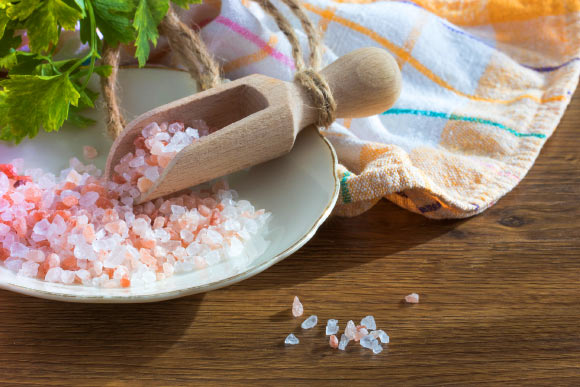Sodium (a component of table salt) intake is associated with cardiovascular disease and strokes only in communities where mean intake is greater than 5 g/day, the equivalent of 2.5 teaspoons of salt, according to a new study published in The Lancet.

Mente et al show that for the vast majority of individuals, sodium consumption does not increase health risks except for those who eat more than 5 g/day. Image credit: Anna Sulencka.
“The World Health Organization recommends that populations consume less than 2 g/day sodium — that’s one teaspoon of salt — as a preventive measure against cardiovascular disease, but this target has not been achieved in any country,” said lead author Dr. Andrew Mente from the Population Health Research Institute of McMaster University and Hamilton Health Sciences and colleagues.
“The American Heart Association recommends even less — 1.5 grams of sodium a day for individuals at risk of heart disease.”
“These recommendations are primarily based on individual-level data from short-term trials of blood pressure without data relating low sodium intake to reduced cardiovascular events from randomised trials or observational studies.”
“We investigated the associations between community-level mean sodium and potassium intake, cardiovascular disease, and mortality.”
The study followed 94,000 people, aged 35 to 70, for an average of eight years in communities from 18 countries around the world and found there an associated risk of cardiovascular disease and strokes only where the average intake is greater than 5 g/day.
China is the only country in the study where 80% of communities have a sodium intake of more than 5 g/day.
In the other countries, the majority of the communities had an average sodium consumption of 3 to 5 grams a day (equivalent to 1.5 to 2.5 teaspoons of salt).
“Only in the communities with the most sodium intake — those over 5 g/day — which is mainly in China, did we find a direct link between sodium intake and major cardiovascular events like heart attack and stroke,” Dr. Mente said.
“In communities that consumed less than 5 g/day, the opposite was the case. Sodium consumption was inversely associated with myocardial infarction or heart attacks and total mortality, and no increase in stroke.”
“We found all major cardiovascular problems, including death, decreased in communities and countries where there is an increased consumption of potassium which is found in foods such as fruits, vegetables, dairy foods, potatoes and nuts and beans.”
_____
Andrew Mente et al. 2018. Urinary sodium excretion, blood pressure, cardiovascular disease, and mortality: a community-level prospective epidemiological cohort study. The Lancet 392 (10146): 496-506; doi: 10.1016/S0140-6736(18)31376-X







